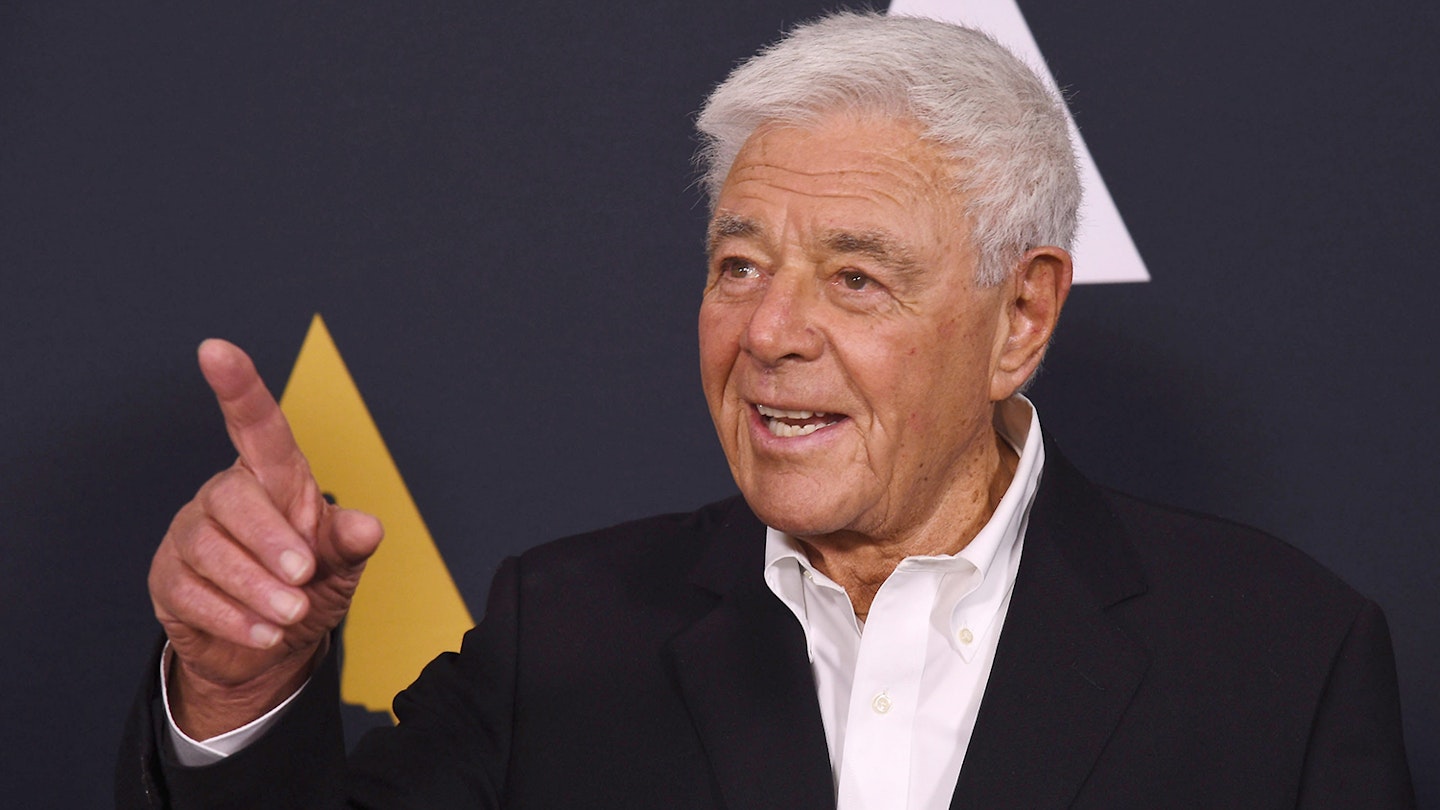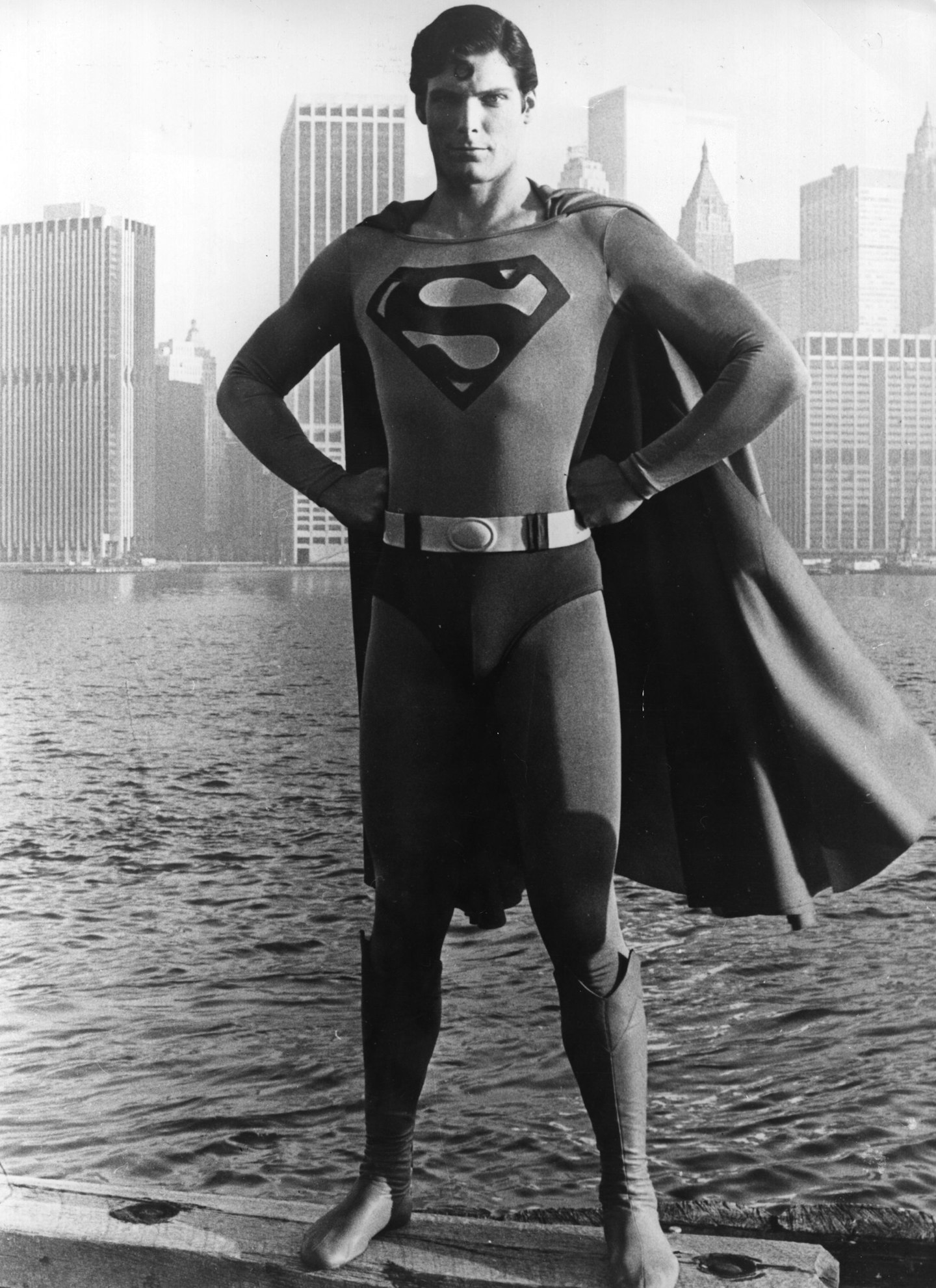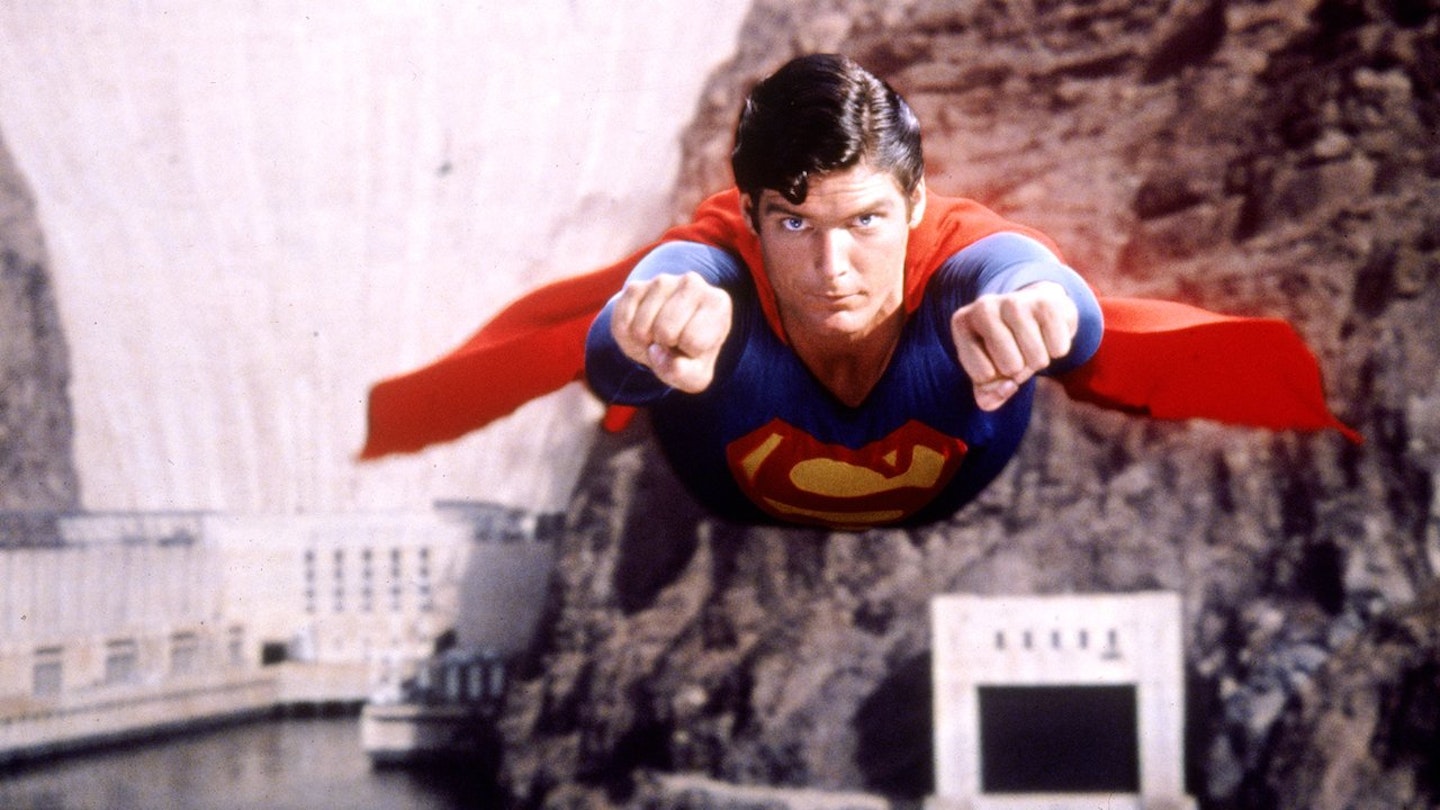Richard Donner, legendary director of such films as Lethal Weapon, The Goonies, Maverick, Scrooged and The Omen, has died. Though he has a resume to rival almost any of his directorial contemporaries, he might still be best remembered as the filmmaker who brought Superman most successfully to cinema screens.
For our February 2019 issue, Empire had the chance to talk extensively to Donner about the making of the movie, his casting Christopher Reeve in the iconic title role, dealing with big egos like producers the Salkinds and Marlon Brando and the impact his work has had on superhero cinema and beyond. Here, he candidly opens up about being replaced while shooting the sequel and the infamous "curse of Superman."
It started on the toilet.
In January 1977, nursing a hangover one Sunday morning, Donner sat there as the phone rang, listening to the Hungarian voice down the line. Producer Alexander Salkind, whom he’d never met, told Donner he had the rights to Superman and was making an origin story and sequel back to back. Donner was only half-interested; hot off the success of his breakthrough, The Omen, he was gearing up to make Omen II. Salkind told him he’d secured Marlon Brando as Superman’s father, Jor-El, and Gene Hackman as Lex Luthor, had a script by The Godfather’s Mario Puzo, and would pay Donner $1 million. Donner’s interest increased. Someone else could deal with Damien.
"It’s so hard to talk about it," says Donner, now 88, after lunch in his Beverly Hills office, referring to Superman’s impact today. "Because it’s become so big. I never thought for a moment that it would when we were making it. We were just making a picture. A film on a subject that nobody was really paying much attention to." Yet, 40 years after its 1978 release, his picture is bigger than ever, eternally rippling.

Back then, Superman was an unknown quantity. There was no superhero film industry — just the big-screen version of Adam West’s 1966 Batman which, for all its merits, did not flirt with reality. And things might have stayed that way: in Donner’s mind, the screenplay Salkind sent him, already rewritten (by Robert Benton and David and Leslie Newman) since Puzo’s draft, was camp. Donner called his friend Tom Mankiewicz, who had written three Bond films, and asked him to rework it with him. When Mankiewicz arrived, Donner ran across the lawn to meet him wearing the Superman costume Salkind had sent him. He’d smoked a joint and was adrenalised — he wanted to rescue Superman.
"The way these people were making it was a defamation," says Donner now. "Superman was such a milestone in my childhood.” Donner was born in Mount Vernon, just outside New York’s the Bronx, in 1930; he was nine when the inaugural issue of Superman hit the stands. He loved comics, saving his dimes to buy them from his local candy store.
"I was brought up in the war years. I remember my folks being so depressed about the war and what was going on. The world needed heroes. And Superman was a great hero. He really stuck with me and became a piece of hope. So Mankiewicz and I, we really felt like we were defending him. This was apple pie, and American dreams, and everything that was American. These people [the producers: Salkind, his son Ilya and Pierre Spengler] weren’t brought up with this incredible character that meant so much to our lives. We couldn’t allow this to happen to him."
The minute the camera rolled, Chris Reeve became Clark Kent, he became Superman. It was quite amazing.
They agreed to let Donner and Mankiewicz rewrite the script, and Donner found himself heading up an appropriately larger-than-life production. Brando and Hackman were each as formidable as the other. “How do you handle those guys? The only thing I can say is, how does a porcupine make love? Very carefully,” says Donner. A gruff Hackman, caring little for comic-book resemblance, refused to shave his head. Brando’s agent, meanwhile, told Donner that Brando wanted to play Jor-El as a green suitcase. Not an actor’s term for his approach to the role — literal luggage. And so Donner went to the Mulholland Drive house Brando was living in with Jack Nicholson. "He was an American icon," says Donner. "It was scary as shit. Oh my God, I was so nervous going up to meet him for the first time, I couldn’t believe I was there." Brando then suggested he play Jor-El as a bagel. Momentarily flummoxed, Donner told him that every kid knew what Jor-El looked like, and they’d love to see him in the flesh. It worked.
The producers had wanted a big name for Superman, failing to secure Robert Redford, Paul Newman or Burt Reynolds. Donner came on board and met with Sylvester Stallone, but was determined to cast an unknown. "You couldn’t see Sly, or Redford, or all the people they were pitching, in that costume," he says. "You wouldn’t believe that they could fly." In New York, casting director Lynn Stalmaster found Christopher Reeve, then acting in TV soap L_ove Of Life_. Donner was unconvinced: Reeve, 24, was too young, he thought. Then Stalmaster took him to see Reeve in an off-Broadway play.
"Oh boy," says Donner, remembering that night in early 1977. "He had such a natural approach. I felt very comfortable watching him." Reeve came in for a screentest; Donner still has a photo from the test, with Reeve in costume. "He was skinny. We had his honey-brown hair painted with black shoe polish. He was sweaty, perspiration on the armpits, this black hair glued down... I look at that photo now, and it’s amazing that he was actually able to convince me that he was the right one for the role. The minute the camera rolled, he became Clark Kent, he became Superman. It was quite amazing."
Donner’s only concern now was Reeve’s frame, despite his 6’ 4” height. Reeve, known among friends as ‘The Human Stringbean,' swore he’d get in shape. "He told me that in high school he was a jock," says Donner," and he said, 'If I get the part, I’ll build myself up bigger than I was years ago.' I said, 'You realise the chance I’m taking. You promise me?' And he said, 'I do.'" To help, Donner employed bodybuilder Dave Prowse, fresh from filming Star Wars. Prowse had unsuccessfully lobbied to play the lead himself; training the character was the next best thing. So Darth Vader went to work on Superman.
"There was nobody better at bodybuilding in London at the time," says Donner."He deserves so much credit for bringing Chris to life for me." After their first session, Reeve threw up. But he went for it. "That kid worked 24/7 to get himself into shape," says Donner. "And you could actually see it happening. Every day there was a little more bulk."
Margot Kidder was cast as Lois almost as soon as she entered the room, accidentally tripping over: Donner loved it, and loved that in her screentest she exuded vulnerability. "Margot was amazing. She had such a sweetness, this wonderful character about her that stood out amongst everybody I had seen. The more time you spent with her, the more it was exemplified. And she was an exceptional young actress."
Terence Stamp, meanwhile, had spent eight years living in an ashram in India, with long hair, a beard and a new name (Swami Deva Veeten, meaning 'the God Beyond'), and wearing orange robes, studying transcendence and tantric sex. He was still in a robe when he arrived at Pinewood Studios to meet Donner. Which was fine. "I did transcendental meditation," says Donner. "We all did it. It was a time in our lives. But there was, and is, a delightful... I guess the word is transcendence, around Terry. When you talk to him you almost feel like you’re meditating." On set, Stamp told people he was playing General Zod "like a galactic Hitler". Richard Donner’s Superman was off and running.

By all accounts, Christopher Reeve became Superman. Many of the cast have commented on his intense commitment to the character. Before the film even came along, he was enamoured with flight, taking lessons in small planes, and became a pilot as filming began. He would enthuse to Donner, a fellow flyer, about how it felt to fly, a love that transferred to what he did as Superman.
"He made the flying extraordinarily believable," says Donner. "I totally believe it had a lot to do with his understanding and the feeling of an aircraft when it flies. The airflow, the lift of the winds and how it’s going to affect you, it’s something you’re very conscious of when you fly an airplane, and I think when he put his hands out on set, he was flying. He totally believed it." Once, remembered Kidder on a panel at 2015’s WonderCon, when they were doing some flying work, a crew member dropped a clapperboard on a wire and they were flung upside down. Reeve instinctively, dramatically reached out. "What the hell was that?" asked Kidder when they got down. Reeve said, "I really thought I could hold us up."
Brando was less intense — he had cue cards all over Krypton. On props, on monitors, on actors’ chests. "I had a discussion with him about that," Donner recalls. "He said, 'Look — I hate sitting down and learning lines. Because if I learn them they no longer come out of me instinctively.' He felt that it was bringing a very honest, fresh approach to the lines. And you know what? Goddamn, he delivered those lines like it was the first time."
The two-film shoot was to last 19 months. A few months before the end it was decided that work on the sequel, around 75 per cent shot, should stop so that Donner could focus on finishing the first one. Throughout he came to blows with the producers, notably when they accused him of going over budget; to this day he says they never told him what the budget was. "I didn’t trust anybody," he says. "I didn’t understand their set-up. They were a pain in the ass. Everything that they would do would be counterproductive to making a good picture. I really was tough on them but I felt that was the only way I was gonna get the picture made the way I thought it should be made, and the way they hired me to make it." For months he felt he would be fired. "I thought, 'Well, I’m gonna get bounced off this thing. I’ll do my best until that happens.'"
Eventually, distributor Warner Bros. stepped in to help. "They wouldn’t let anything happen to me," he says. "They backed me to the hilt." Donner got to finish his film the way he wanted to. After it screened at the premiere, Superman creators Jerry Siegel and Joe Shuster, in tears, thanked him. The 1978 release set box-office records, second only that year to Grease, becoming Warner Bros.’ most successful film at the time. Yet a few months later, Donner was unceremoniously replaced for the remaining work on Superman II by Richard Lester. "I was really pissed off," he says. Due to all the production tussles and his refusals to compromise, "in a strange way" he understood their decision. "But I was really pissed off."
He moved on — The Goonies and Lethal Weapon would follow — but remained close to the cast, who credited him with nurturing a beautiful environment on set — a family. "I love Dick Donner with my heart and soul, and I always will," said Kidder in 2009. Donner speaks with huge sadness of her recent passing. Plagued by mental-health problems over the years, her death was ruled as suicide. "I can’t believe Margot’s gone. It’s just too much," he says, emotionally. "She was an amazing actress. God, Margot. Goddamn it." He’s heartbroken. "I loved Margot. She was just a special human being, overcoming the worst problems... I had great hope that she would continue beating these problems. I guess it was just too much for her."
Reeve’s death cuts just as deep. "We were part of each other’s lives," says Donner. "After his accident [in 1995, when Reeve was paralysed from the neck down after falling from a horse] I went up and spent time with him. When he was directing his film [1997’s In The Gloaming]. I didn’t help him make the movie, but I was there. I could confide in him and he could confide in me."
Donner hurts to the extent that he mentions, heavily, "the jinx of Superman", the superstitious linking of tragedies besetting everyone from original TV Superman George Reeves, to Kidder, Reeve, Brando and more. It’s hard to hear that he gives it credence. But he’s suffered. "I know, I don’t wanna believe it," he says. "But every once in a while somebody’ll bring it to my attention and I’ll bend to it. God almighty, I hope I’m wrong. But who knows. I have guilt sometimes, about Chris."
Why? "That what we did brought about the curse of Superman. Look at it. Almost everybody. I don’t believe those things, at all. But they’re there. There’s gotta be a reason that they’re there."
Superman himself seems adrift now. Donner’s old-fashioned hero earnestly defended truth, justice and the American way, and even back in 2006, Bryan Singer dropped the latter from Superman Returns, his nostalgic love letter to Donner’s work. Zack Snyder’s angrier take on the character, meanwhile, seems diametrically opposed to what Donner did. Is it possible that an on-screen Superman just has no place in today’s jaded, less hopeful world?
"Well, maybe. Maybe it’s an issue that the times have changed, so they wanna make things a little different to stand out," says Donner of the current iteration. "What do I personally think about them? I have to respect them for their approach. Is it my approach? No." Can he put his finger on what he and Reeve got so right? "Boy oh boy. It’s hard to say, it really is. We tried to keep a tradition alive. It was a different time and a different way of life, when we made it. Now it’s their time. Good luck! But I think I screwed them up, by doing the first one. Because it was more in the tradition of the reality of the comic book. That puts them in a bad spot."
In fact his film permeates the entire industry: Donner’s golden boy is still the gold standard. When he pitched his vision of the Dark Knight to Warner Bros., Christopher Nolan said he wanted to do for Batman what Donner did for Superman. Patty Jenkins said Donner’s film changed her life, and cited it as the main influence on her Wonder Woman. Marvel’s Kevin Feige said last year that it is still "the archetype of the perfect superhero film origin story, and we watch it before we make almost any one of our films." It’s quite the legacy — maybe too much, perhaps.
"Look, I made a movie," says Donner. "I had no idea how it was gonna turn out. I had a purpose in making it, and I felt we served its purpose in observing what I felt was important about Superman, and the respect I had for him over my lifetime. And it turned out well. So when people tell me they like it, it makes me feel great. Wow. I say to myself: 'Job well done, old boy.' It feels wonderful. It makes me proud." As he should be. That picture he made, the work he did? Heroic.
